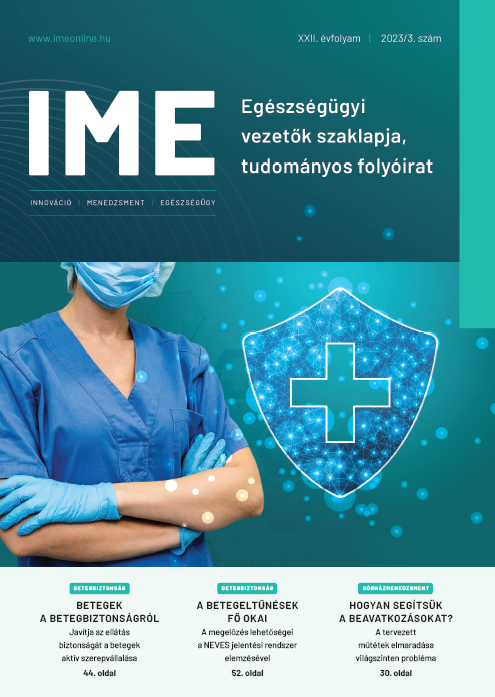Integrált rehabilitációs ellátás II.
Nemzetközi tapasztalatok és tanulságok
Absztrakt
A rehabilitációs ellátás hazánkban jellemzően kórházakban történik. Ez az Egészségügyi Világszervezet és a szakterület nemzetközi szervezetei szerint nem szükségszerű. A nemzetközi szakirodalomban lakóhely közeli ellátási lehetőségekről, ezekkel szerzett tapasztalatokról számolnak be. Szerzők áttekintették az utóbbi évek nemzetközi szakirodalmát, az integrált rehabilitációs ellátás lehetőségeinek és feltételeinek feltárása érdekében. Célzott szakirodalom keresés történt a PubMed adatbázisban, a címek és absztraktok, végül a kiválasztott közlemények áttekintése alapján, és a fontosabb eredmények narratív bemutatása. Szisztematikus elemzés nem történt. Az integrált rehabilitációs ellátási modellt nagyszámú fogyatékos, vagy fogyatékossággal fenyegetett populáció esetében, leggyakrabban esendő idős emberek érdekében alkalmazzák. Az ellátási szintek vertikális és az ellátást végző különböző teamek munkájának horizontális koordinációja is szükséges, valamint jó kommunikáció közöttük, illetve a páciensekkel. Új rendszer indítását megfelelő erőforrások, elsősorban a multidiszciplináris teamek jelenlétének biztosításával, illetve a meglévők képzésével érdemes kezdeményezni. Az ellátás folyamatos monitorozása szükséges, a páciensek értékelését is figyelembe véve. Ismertetnek kedvező költség/haszon adatokat, ám még kevés a hatékonyságra vonatkozó egyértelmű bizonyíték. Közép-keleteurópai országokban az integrált ellátás feltételei a hazaihoz hasonlóak, mérsékeltek. Szerzők saját vizsgálatuk korlátjai között említik, hogy nem készült szisztematikus elemzés, a felhasznált források rendszerekből adódó és módszertani heterogenitása jelentős, ami az eredmények értékelését nehezíti. Ennek ellenére jól látható tendenciák ismerhetők fel, amelyek kritikusan elemezve kerülnek bemutatásra. Az integrált rehabilitációs ellátás fejlesztésének fontos feltétele az összes érintett szereplő bevonása a tervezésbe és az eredmények monitorozásába, az átalakítás erőforrás szükségleteinek, valamint a megfelelő kommunikációnak és koordinációnak a biztosítása.

This work is licensed under a Creative Commons Attribution-NonCommercial-NoDerivatives 4.0 International License.




